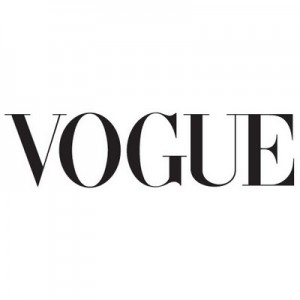Does Vogue’s Influencer Network Exploit Fashion Bloggers?
Kristina, the blogger behind Pretty Shiny Sparkly, posits that “Bloggers Do It Better” (style trends, that is); and when it comes to influencing online audiences, plenty of people and plenty of numbers support that.
 We just explored how fashion magazines are faring online against fashion blogs (they’re not failing, but the bloggers are doing pretty well on their own). Unsurprisingly, the magazines who are doing it (engaging an audience, that is) as well as bloggers are the ones who’ve been active in bringing bloggers into the fold through partnerships or special site sections.
We just explored how fashion magazines are faring online against fashion blogs (they’re not failing, but the bloggers are doing pretty well on their own). Unsurprisingly, the magazines who are doing it (engaging an audience, that is) as well as bloggers are the ones who’ve been active in bringing bloggers into the fold through partnerships or special site sections.
So when we heard about Vogue‘s 1000-strong “Influencer” network, we thought it was a smart move. Then we read more and wondered if we’d overlooked the benefit to the participating bloggers.
Here’s AdWeek’s summary:
“The Influencer Network is a panel of some 1,000 women deemed to have sway over other women, based on how active they are on social networks like Facebook and Polyvore, a fashion site where people create collages of outfits and share them with other members.
“There are a lot of people who are self-appointed experts,†says Susan Plagemann, vp, publisher of Vogue. “The biggest difference is, we’re developing a program of ambassadors who spread the word digitally across a very big network about the access that’s been given because of Vogue.â€
Panel members, who aren’t compensated, are asked to provide feedback for clients on anything from new products, upcoming fashion collections, and ad creative. They’re encouraged to talk about the products on their social networks, raising awareness of the products and Vogue itself.” {AdWeek}
Emphasis ours.
So let’s get this straight: bloggers and others who’ve proven* themselves to be influential in building followings on different social media platforms provide free market panel feedback (usually part of qualitative market research, usually paid for) to companies who have enough money to pay Vogue for a $150,000+ ad (the average cost of a one page, color advertisement in the print magazine). Vogue, a magazine that had over $100 million in revenue in one quarter last year, gets to add a premium to ads which cost $150,000+ per page by advising advertisers on how the products or ads will perform online and pushing the products and ads through a network of people who will seed them to help ensure their success. And the bloggers and influencers get… shafted.
While this sounds like an amazing business model for Vogue and their advertisers, it doesn’t sound like anything remotely beneficial to the people participating as currently structured. Which brings us to the * behind the proven portion of the pitch.
Styleite notes that many of the influencers don’t actually seem to have much influence. We know that quantity isn’t everything in social media – an account with 1000 engaged followers/fans can perform as one with 10,000 passive users attached. Needless to say, on the web we’re firm believers that influence isn’t just about which fashion blog has the most traffic. That said, almost none of the bloggers featured have an Alexa ranking below 2 million, or enough traffic to register on any other traffic estimation site (Quantcast, Google AdPlanner, Compete), and one has a grand total of 11 links from other blogs and sites.
We’re not going to call any out by name, because many of the blogs are fairly new so it’s understandable that their traffic, links, social media activity and other signs of influence would be low. There’s no shame in that at all, but it is a stretch to call them influencers at this point. This sounds more like a qualified consumer panel, but the difference is that consumer panels normally get something these ladies don’t: payment for their participation. It’s not anything to retire off of (typically $20-$100 depending on the time involved), but it’s something that reflects the fact that consumer feedback to the type of companies who can pay $150,000 for an ad can afford to pay people for giving them feedback that will help them increase brand awareness and sales. Helping to spread their commercial, promotional messages has a value as well.
You know who is influential in fashion? The Sartorialist. He may rub some people the wrong way with his description of “sturdy” legs and indifference towards personal bloggers, but even there it takes off on social media and causes controversy because he has online influence that’s backed up by the number of people linking to, following and sharing his content. There are 98 other fashion blogs here who are influencing people, and we’re pretty sure that most aren’t in Vogue‘s network.
And though we haven’t asked him, do you know what someone like the Sartorialist would probably say if someone asked him to be an ambassador for a commercial brand with a (minimum) 6-figure ad budget by providing feedback to said brand on ways to improve their $150,000 ad and tell people about it online for free? No.
